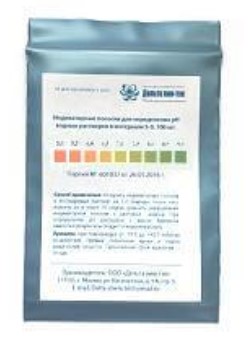Ex-top manager of Tinkoff launched a fintech service for investors in the UAE
Former head of Tinkoff Private Ilya Oprenko, who left Tinkoff last August, together with his partners launched the international digital wealth management platform Skyfort. The parent company Skyfort Capital is registered in Dubai (UAE) and has a brokerage license in a special zone for financial organizations (ADGM), located in Abu Dhabi, Oprenko told RBC. The service plans to work with clients from Russia, post-Soviet countries and countries of the so-called global South.
The co-founders, together with Oprenko, were the former managing director and partner of the consulting companies BCG and Oliver Wyman Sergei Ishkov and entrepreneur Igor Smirnov. The amount of investment in the project is not disclosed, but the co-founders’ own funds were invested in it, as well as other private investors (Oprenko describes their circle as friends & family - this is how the circle of close acquaintances who invest in startups in the first stages of development is usually called). The controlling shareholder of the company is Oprenko, it employs 25–26 people on staff, about 15 people freelanced to help launch the investment platform. The team is scattered throughout Russia and the world, Oprenko said.
“This has nothing to do with Tinkoff,” he emphasized. The funds raised should be enough “to cover needs for at least three years, including international expansion, platform creation and acquisition of legal infrastructure.”
“Tinkoff Bank had everything to become a successful neobank on a global scale. But after 2022, these prospects had to be forgotten. It became clear that the business had rolled back about ten years in its development from an infrastructure point of view,” Oprenko said. Tinkoff Bank came under EU sanctions in February 2023, and US sanctions in July. “At some point I realized that if you want to do something, then do it yourself,” Oprenko explained his own motivation.
This is not the first foreign fintech service created by former top managers of Tinkoff after the introduction of large-scale sanctions on the Russian financial system. Thus, in the summer of 2022, former co-CEO (co-CEO) of Tinkoff Pavel Fedorov, together with ex-chairman of the board of directors of Tinkoff Bank Georgy Chesakov and consultant Raffi Montemayor, launched the banking startup Salmon in the Philippines, and then bought a local bank for its development.
How to work outside of Russia with rich Russians and not onlySkyfort, as described by Oprenko, is a digital platform for wealthy and affluent clients (premium), as well as for their managers, with the help of which they can manage their assets through a single “window” and participate in transactions on the capital markets. The target segment is clients with a check from $1 million to $10 million, mainly up to $5 million, as well as affluent clients - people with a net worth of $250 thousand to $1 million. This is “the most promising, underserved and fastest growing segment in the world,” Oprenko explained. Skyfort plans to conduct transactions through the infrastructure of Europe, the USA, as well as the Middle East and Southeast Asia.
RBC Pro development program Master 52 skills in a year The development program is a convenient tool for continuously learning new skills for a successful career How to force yourself to constantly move forward - nine simple tips Elon Musk test: do you have the traits of a visionary leader Million dollar environment: how to find friends with whom you want to develop What Henry Ford was wrong: 6 bad tips from world business gurus How to maintain high results through planning: 10 practices Tiffany Bova: storytelling is your main competitive advantage Networking: how to turn any acquaintance into a useful business connection Do you want make a breakthrough in your career - start listening to your body There is no point in making a superfood for months: 6 rules of the founder of “Vkusvill” Think like Jeff Bezos . What algorithms do successful businessmen use? Not a single idea in my head. How to learn to be creative again Sprinkle ashes on your head and get out of sight: what harms your reputation“Globally, the idea is that on the platform we provide all the products, services, infrastructure, everything that an asset manager and high net worth client needs to manage their wealth around the world,” he said. The service will work both on the traditional securities market and on private markets ( real estate , venture capital, hedge funds, private credit, etc.), and also, possibly, in the cryptocurrency segment - depending on regulation in a particular jurisdiction .
At the first stage, the project will focus on working with clients from Russia, as well as from the countries of the former USSR. “We have already started working in Russia and are now taking steps in the countries of the post-Soviet space, in particular in Kazakhstan, Armenia, Georgia, Uzbekistan and Azerbaijan. This stage will last during the first half of the year or three quarters of 2024 ,” Oprenko explained. However, it is impossible to build a big business around only Russian clients, so the founders of the service are aiming at developing markets, “where there are no fewer wealthy clients, but they are not subject to so many restrictions.”
Skyfort plans to enter one of three regions of the global South, but not the Indian and Chinese markets - these are Southeast Asia, the Middle East and Africa or Latin America. According to Oprenko, with a high degree of probability this will be the Middle East and Africa. “We are interested in these regions primarily from the point of view of attracting local clients, that is, wealthy people who are actively growing in these countries,” Oprenko explained. According to him, clients from other countries have an active request for high-quality service, which the Russian market has long provided, Oprenko continues: “I call this Russian service arbitrage - when you have very high-quality people at a relatively low price in dollar terms and you can broadcast this experience and advantage externally.”
As for Russian clients, they are now experiencing difficulties in finding infrastructure outside of Russia, and in Russia there are no safe ways to directly participate in the American securities market, Oprenko notes. Brokers from the UAE, some countries of the former USSR, mainly Central Asia, Transcaucasia are ready to work with them; there are options in Singapore, Hong Kong and, in the future, Mauritius. Interactive Brokers and some European brokers of not the first order continue to work with Russians, but they require at least a residence permit (residence permit) of another country, the former head of Tinkoff Private indicated.
“In general, the world of a Russian client outside of Russia is quite shaky, and the rules of the game are constantly changing. Russian clients need to forget the concept of a safe harbor. Therefore, there is only one solution here - diversification and constant awareness of what is happening. We need to follow the regulations and what local authorities say,” says Oprenko. Whereas previously it was enough to have two brokerage accounts and several bank accounts in the UK or Switzerland, now clients often have four or five bank accounts, three or four brokerage accounts, and they are forced to constantly distribute their assets between these jurisdictions so that at some point under the restrictions of a particular country, not to lose a significant part of the capital, he describes the situation.
“I don’t see any prospects for this situation to improve anytime soon. I rather see the prospects for its deterioration. It’s like in a game - the islands disappear from under your feet, and you always have to jump from one island to another so as not to fall into the lava,” Oprenko compares.
Are there any prospects for such a service?It is in the planned range of “welfare” that there will be enough demand for investment abroad, says Ilya Khersontsev, head of the Association of Retail Investors (ARI): “This category of clients fears that their investments may be frozen if sanctions are imposed on Russian financial institutions. To invest through European brokers, you need a residence permit and preferably live in the eurozone. Investments through the UAE will solve these problems."
According to the director of the asset management department of Ingosstrakh-Investments Management Company Artem Mayorov, there are now two large Russian retail participants in the wealth management market who do not advertise their connection with their Russian legal entities, but nevertheless largely use their technological platform.
Such a service may be in demand primarily among clients with a Russian passport, moreover, among clients who have legally acquired a second passport from one of the Central Asian republics, believes Dmitry Lesnov, head of the client service development department of Finam Financial Group. He recalls that the largest asset management companies, primarily European and American, have stopped to varying degrees cooperation and interaction with Russian clients, and those that continued to provide such services and open accounts for Russians severely limit them. For example, there is no way to obtain market data in real time, and there is no way to use leveraged loans. “If such a structure helps to avoid all these restrictions, then it will probably really be in demand on the market,” admits Lesnov.
Time will tell whether the project will be able to scale to other regions - the UAE is making a lot of efforts to be attractive from this point of view for investors, says Khersontsev. “Taking into account the fact that the United States and Europe are strengthening secondary sanctions, and clients will be citizens of the Russian Federation, clients from other countries have risks that the project may accidentally fall under such sanctions because of a specific client and all funds will be frozen,” warns Khersontsev . He adds that if regulators can be convinced of the strictness of compliance and adhere to it, there should be no problems with development.
Traditionally, in the wealth management segment, physical support for clients and the ability to speak the same language with them are important, Mayorov discusses the prospects of the project in foreign markets. He believes that “the service of a company with Russian roots will most likely occupy a high share in the market of Russian emigrants, but is unlikely to show a similar result for other clients.”
“After the sanctions on the St. Petersburg Exchange, Russian investors have had a reduced number of options for investing abroad, and they are now actively looking for a replacement. Therefore, the service may be in demand among them, but there are sanctions and regulatory risks,” adds Sergei Suverov, investment strategist at Arikapital Management Company. They may arise in the case of a high proportion of Russian clients, he notes, including in the UAE.





























































